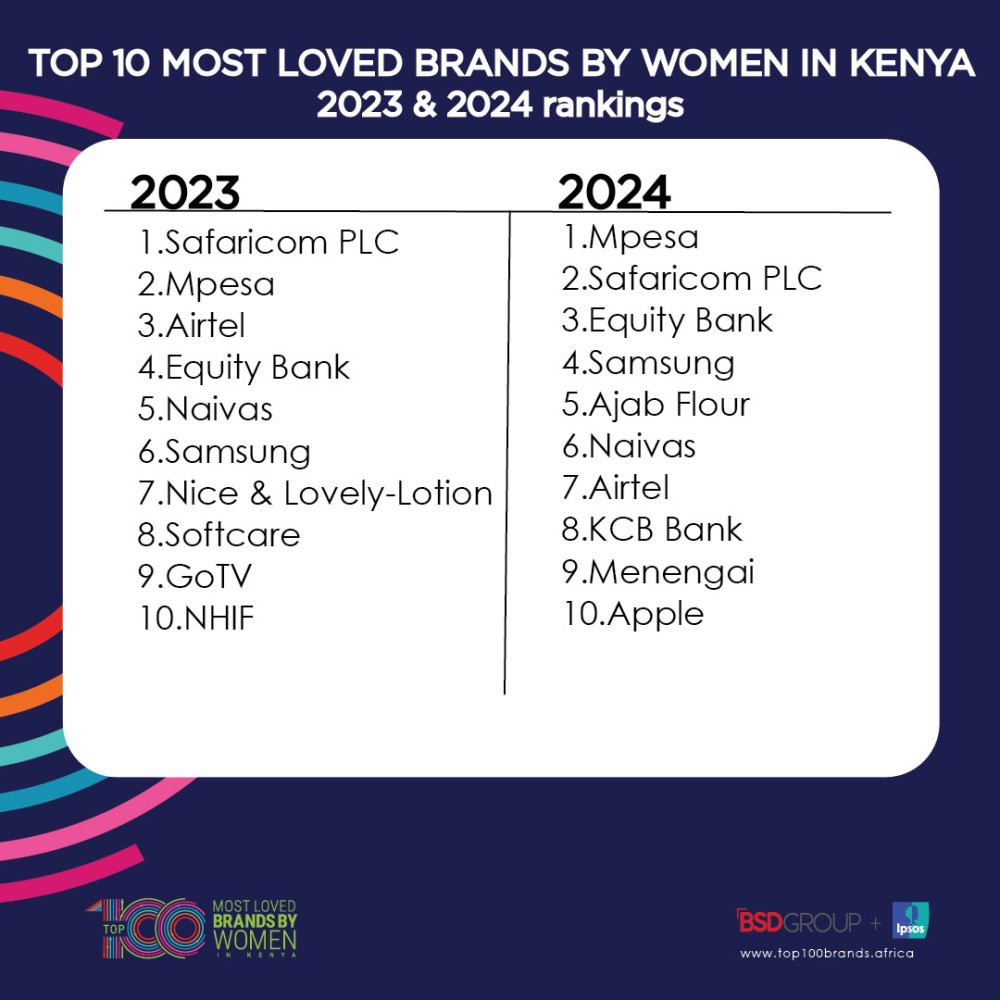In the recently unveiled 4th edition of the Top 100 Most Loved Brands by Women study, several key takeaways emerged, shedding light on intriguing trends and shifts in brand rankings from previous years.
One of the most striking findings is the significant turnover in brand positions, with 54 brands that were part of the top 100 in 2023 dropping off in 2024. This dynamic reflects the ever-evolving preferences and perceptions of female consumers in Kenya. Furthermore, the study reveals that 23 brands experienced a decline in their rankings, while 18 brands showed improvement, indicating a dynamic and competitive market landscape. Notable brands like Ajab and Delamere made strides by moving up in the rankings, showcasing their ability to resonate with women consumers.
On the other hand, the study highlights brands that have faced challenges, with Ketepa being one of the brands that consistently dropped in position year on year. Other brands that experienced significant drops include Netflix, Ramtons, Quickmart, Toss, and Broadway. However, amidst these shifts, there are also success stories. Brands like Kabras, Jamaa, Lato, Ndovu, Dola, and Ajab have shown remarkable improvement, climbing several positions in the rankings. This underscores the potential for brands to adapt and thrive by understanding and responding to women’s evolving preferences.
Interestingly, Apple made its debut in the top 100 brands list in 2024, securing a notable position at number 10. Additionally, 43 other brands emerged for the first time in the top 100, including Mumias, Tecno, Taifa Flour, Kenploy, Yetu Sacco, Copia, Bata, Oppo, Fresh Fry and more reflecting the diverse landscape of brands capturing women’s attention and loyalty.
Notable brands in specific sectors include:
- NHIF – The only insurance brand in the top 100 list.
- One Acre Fund – The only NGO on the top 100 list.
- Kenyatta Hospital – The highest-ranked hospital brand, with no private hospital on the top 100 list.
- Toyota Harrier – The only automotive brand on the list.
These insights from the study not only provide valuable data for brands to refine their strategies but also reflect the dynamic nature of consumer preferences and the competitive environment in Kenya’s market. As brands continue to evolve and innovate, understanding and responding to women’s needs and aspirations will be key to sustained success and growth in the market.



